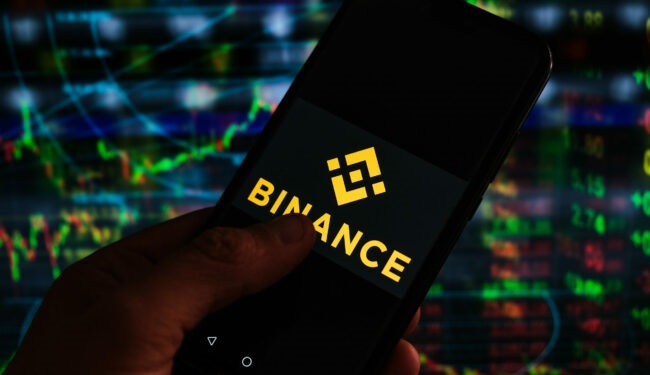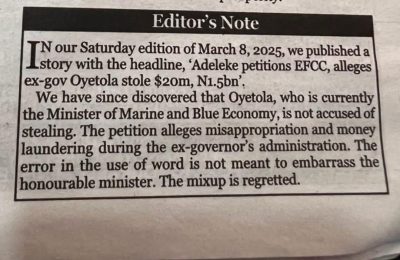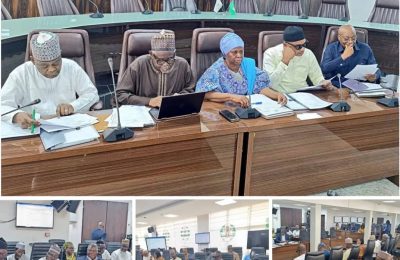
BINANCE will stop all transactions and trading in Naira after March 8, amid Federal Government’s crackdown on crypto exchanges that have been blamed for feeding the black market of foreign exchange.
In a phased approach this week, according to a March 5 statement, after Friday, Binance will stop supporting withdrawals, and any remaining balances in Naira will be automatically converted into Tether – a stablecoin whose value is pegged to the U.S. dollar.

The crypto exchange will automatically convert naira balances to USDT from March 8 at 8:00 a.m. UTC but will cease support for Naira deposits after 14:00 UTC today, while withdrawals will be unsupported after March 8 at 6:00 a.m. UTC.
Binance posted on its website on Tuesday that the conversion rate for automatic conversions will be 1 USDT per N1,515.13, according to an announcement.
All spot trading pairs against the naira will be delisted on March 7 at 3:00 a.m. UTC and open spot orders for these pairs will be automatically closed.
At various dates and times, Binance Convert, Binance P2P, the exchange’s Auto Invest feature, and Binance Pay will also cease support for the naira.
The Federal Government has recently increased its scrutiny over Binance’s operations in the country.
The Richard Teng-led crypto platform stated that its Nigerian users would not enjoy several Naira related services, including deposits, withdrawals, conversions, spot trading, P2P, Auto-invest, and Binance Pay.
While Naira deposits have ceased immediately, users have until March 8 to withdraw their Naira assets and after the deadline, Binance intends to automatically convert the remaining Naira balance to USDT at a fixed rate of 1 USDT for $1,515.13, the average closing price over the last seven days.
Moreover, Binance will delist all Naira spot trading pairs and automatically close all open trading positions by March 7 2024.
Binance did not provide any official reason for its decision to discontinue all services in Naira.
It is instructive to note that Binance’s decision to cease Naira services may not be unconnected to its challenges with the Federal Government government over the past weeks.
The authorities have accused the exchange of exacerbating the country’s foreign exchange challenges by usurping the Central Bank of Nigeria’s (CBN) role in setting exchange rates.
While the crypto platform denies this allegation, the Federal Government embarked on a crackdown of the firm, including a blockade of its website, in addition to the reported detention of two Binance staff members, and seizure of their passports.
Also, recent reports have disclosed that the Federal Government government is contemplating imposing a $10 billion fine on Binance for its alleged infractions.
However, Bayo Onanuga, an aide to the President Bola Tinubu, has denied these reports, claiming that the authorities have yet to conclude the actions they would take on the exchange.
Moreover, National Assembly recently summoned Binance CEO, Richard Teng, to appear before a committee over the exchange’s alleged role in money laundering and terrorism financing.
Binance is a global cryptocurrency exchange that provides a platform for trading more than 100 cryptocurrencies.
Richard Teng CEO at Binance, a veteran in the financial services and regulatory sectors, has over three decades of extensive experience.
Last week, Nigerian authorities detained two Binance senior executives on undisclosed charges as part of the crackdown.
READ ALSO: Decomposing body found near filing station in Ebonyi








